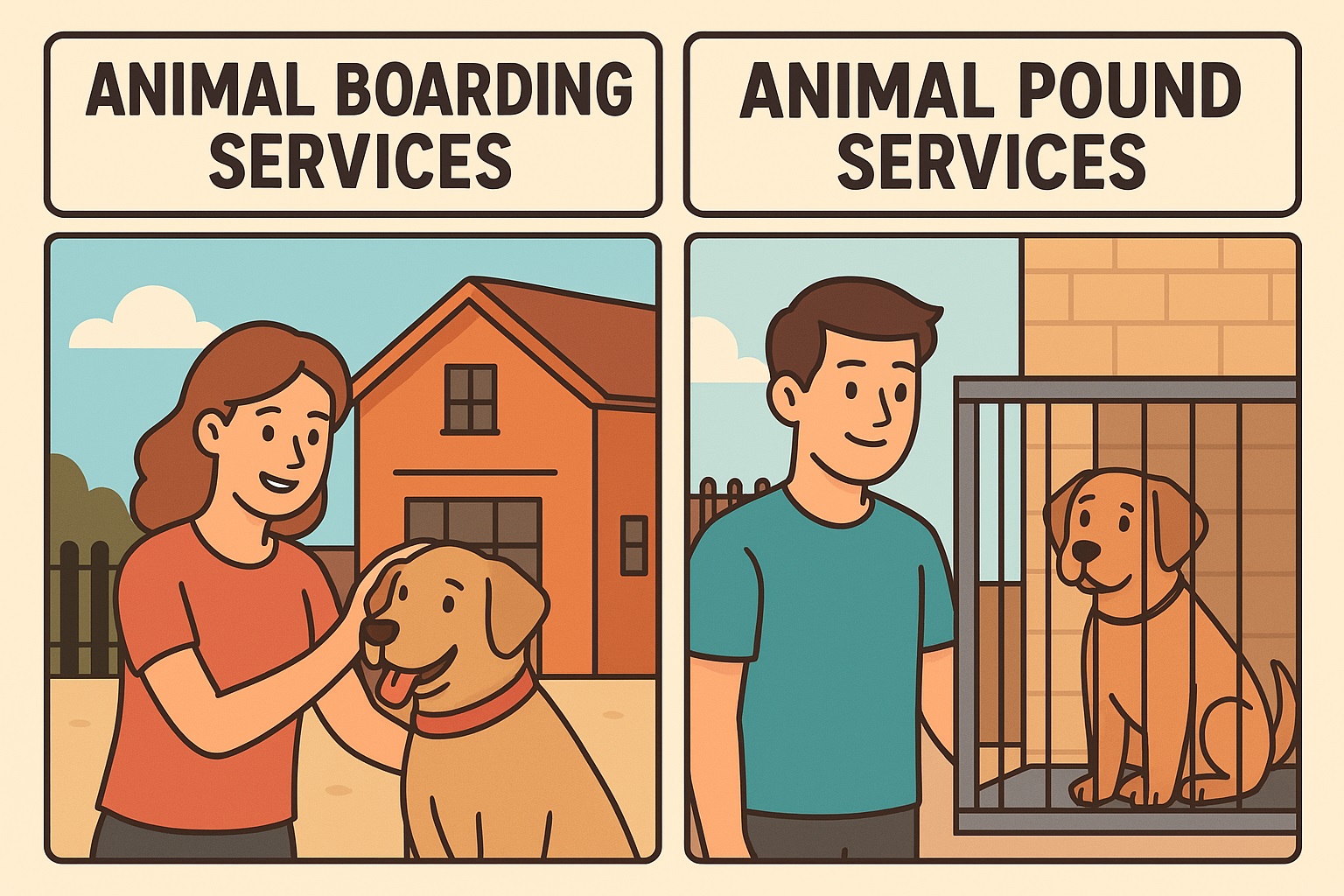
Trademark Registration of Animal Boarding and Animal Pound Services
Trademark Registration of Animal Boarding Services and Animal Pound Services in Class 43
Trademark Registration of Animal Boarding Services and Animal Pound Services
Understanding the importance of trademarks in animal care services
In today’s evolving pet and animal care industry, services like **animal boarding facilities** and **animal pound services** have become increasingly vital. With the rising trend of pet ownership and animal welfare awareness, businesses and organizations in this space are actively building distinct brands. A strong **trademark registration in Class 43** ensures legal protection, establishes customer trust, and helps service providers differentiate themselves in a competitive market.This blog offers a detailed look at how businesses can protect their brand names for Animal Boarding Services and Animal Pound Services, how to avoid conflicts with other registered marks, and strategies for mitigating disputes.
Understanding Class 43 for Trademark Registration
Scope of Class 43 under the NICE Classification
Class 43 primarily covers services related to hospitality and animal accommodation. For the purpose of this blog, two important service categories are included:1. Animal Boarding Services – Commercial facilities that provide temporary lodging, feeding, grooming, and general care for pets and animals when owners are away.
2. Animal Pound Services – Services provided by municipal bodies, NGOs, and private entities to house stray or abandoned animals, often with a focus on rehabilitation, adoption, and public safety.
By registering a trademark in Class 43, entities ensure brand exclusivity and protection against unauthorized usage.
Reasons for Animal Boarding and Animal Pound Services
Animal Boarding Services
Meeting the needs of pet owners
- Increasing urbanization has led to greater demand for safe facilities where pets can stay while owners travel. - Boarding services provide structured care including feeding, exercise, veterinary assistance, and social interaction. - They create a trustworthy brand identity for repeat customers and build long-term loyalty.Animal Pound Services
Supporting public welfare and animal rights
- Pounds house stray or abandoned animals until reclaimed, rehomed, or rehabilitated. - They play a vital role in reducing animal-related risks in communities. - Trademarks for pound services allow NGOs, municipal authorities, and animal welfare groups to establish recognition and credibility.Priority Suggestions: Name Search on Trademark Public Search Portal
Why name search is essential
Before filing a trademark application, conducting a name search on the **Trademark Public Search Portal (India)** or WIPO Global Brand Database is crucial. This helps avoid infringement, objections, or opposition by identifying similar or identical existing marks.Steps for conducting a name search
1. Visit the **IP India Trademark Public Search Portal**. 2. Select **Class 43** for the search. 3. Enter the proposed brand name or keywords (e.g., “Pet Stay”, “Pound Care”). 4. Review phonetic matches, identical words, and logo similarities. 5. Finalize a name with no close resemblance to existing registered or applied trademarks.Determining a New Brand for Trademark Application
Key strategies for creating a unique animal care brand
- **Invented words**: Create new coined terms (e.g., “FurHaven”, “PawNiche”). - **Suggestive names**: Names suggesting service qualities without being generic (e.g., “SafePaws Boarding”). - **Avoid descriptive terms**: Generic terms like “Pet Boarding Services” lack distinctiveness and are difficult to protect. - **Check domain availability**: Ensures alignment between trademark and online presence. - **Verify social handles**: Ensures brand consistency across platforms.10 Ways to Avoid Challenges and Conflicts in Class 43
1. Conduct comprehensive trademark search
Always check existing marks before applying.2. Choose distinctive names
Coined, arbitrary, or suggestive terms are safer than descriptive names.3. Avoid generic or geographical names
Names like “Delhi Pet Boarding” may face objections.4. Check similarity in sound and spelling
Names sounding similar may still conflict (e.g., “PetCaree” vs. “PetCare”).5. Avoid industry clichés
Common words like “Paws”, “Tails” may already be widely registered.6. Register both word and logo marks
Dual protection prevents misuse of brand identity.7. Conduct periodic monitoring
Track new filings in Class 43 to detect conflicts early.8. Secure international registrations
For global businesses, apply via the Madrid Protocol.9. File for multiple variations
Protect brand name, tagline, and key service slogans.10. Seek legal consultation
Trademark attorneys help mitigate risks and handle objections.________________________________________
Mitigating Rising Conflicts in Animal Boarding and Pound Services
Effective strategies to resolve disputes
- **Negotiation and coexistence agreements** – When two parties use similar marks, agreements may define territorial or usage limitations. - **Rebranding early** – If facing high litigation risk, adopting a fresh name may save long-term costs. - **Trademark watch services** – Proactively track competitor filings. - **Use of disclaimers** – Helps limit the scope of certain words while still protecting the brand. - **Alternative dispute resolution (ADR)** – Mediation or arbitration avoids lengthy court battles.Conclusion
Final thoughts on trademarking animal services in Class 43
Registering trademarks for **Animal Boarding Services** and **Animal Pound Services** under Class 43 is more than just a legal necessity—it’s a cornerstone of brand identity. From building trust with customers to protecting against unfair competition, a registered mark gives organizations long-term value and exclusivity.
